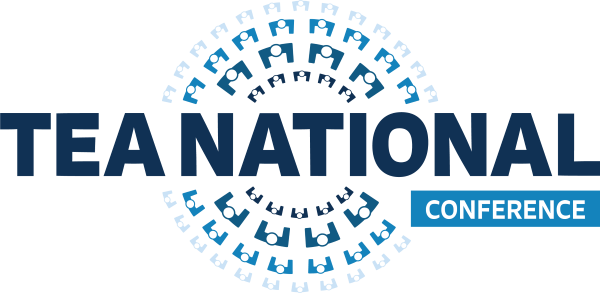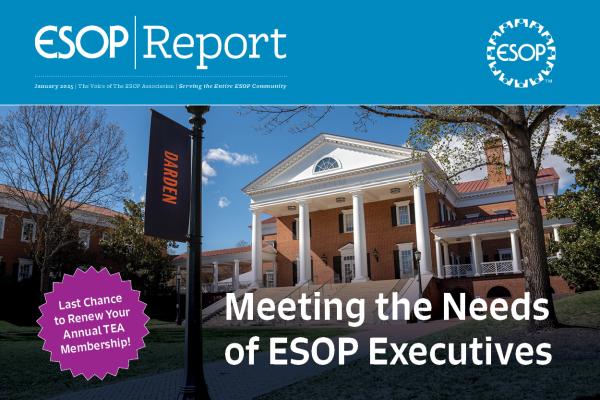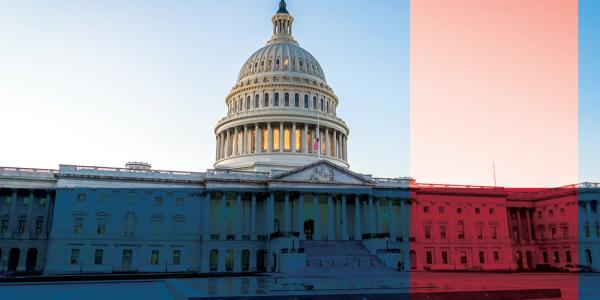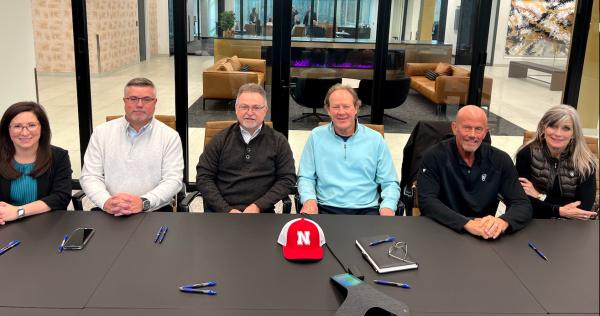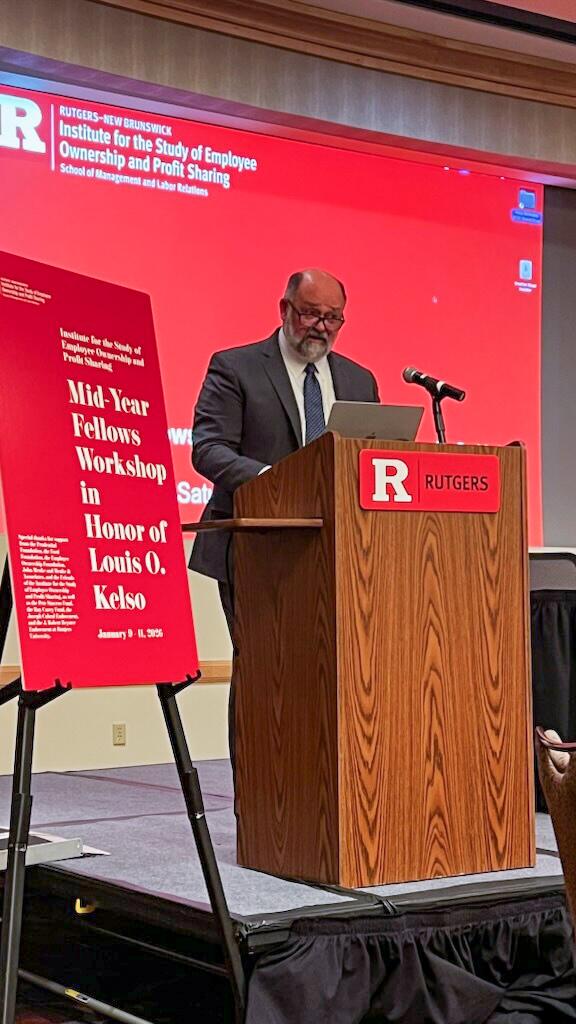The ESOP Association has been working diligently for years to build and strengthen relationships with the Senators, Representatives, key committees, and staff who have jurisdiction over our issues in Congress and Congressional agencies. We have built an impressive grass roots program – the Employee Ownership Action Network, an annual Congressional Advocacy Day and Advocacy Academy with over 250 participants, and a policy development infrastructure that is generating meaningful proposals that have resonance with lawmakers. Annually, TEA is spending over seven figures each year to advance ESOPs and employee ownership in Washington and around the nation.
Over the last several months, those efforts bore concrete results. Congress has been responding in a bipartisan way to a multitude of ESOP Association legislative proposals and oversight requests. Make no mistake, the flood of Congressional activity in the House and Senate are the direct result of The ESOP Association’s membership and the efforts of TEA’s powerful lobbying team. These initiatives began years ago within our Public Policy Council with the development of ideas, formation of white papers, draft legislation, and policy priorities that were eventually recommended, and adopted, by the TEA Board of Directors.
This week, at the request of TEA, ESOP-related hearings were held in the House and Senate. In the heated partisan atmosphere that has engulfed Washington in 2025, it is highly encouraging to see that the widespread bipartisan support for ESOPs and employee ownership continues to be an issue that unites members of both parties.
On Tuesday, July 22nd, I had the privilege of providing testimony on behalf of the Association’s membership before the House Education & Workforce Committee in a hearing titled “Restoring Trust: Enhancing Transparency and Oversight at EBSA.” The committee Chairman, Rep. Tim Walberg (MI), is very aware of the anti-ESOP bias at EBSA, and invited us to publicly highlight and document for the record how EBSA’s enforcement and investigative tactics have hurt ESOPs and employee owners, and stifled new ESOP formation. My testimony focused on several of the most problematic issues our membership has with EBSA, including:
- The use of secret common interest agreements, where taxpayer resources are used to subsidize class action lawsuits brought by private plaintiffs’ law firms against plan sponsors and fiduciaries.
- Never-ending investigations into ESOPs and dragnet-style fishing expeditions against fiduciaries that can drag on for years without finding any wrongdoing.
- Regulation by litigation, whereby EBSA investigates ESOP valuations by enforcing unwritten and nonexistent rules.
- Ignoring Congressional intent through decades of refusal to provide formal, clear regulatory guidance on adequate consideration.
In addition, the Education & Workforce Committee hearing was an opportunity to discuss two bills introduced by committee members to at least provide some transparency and accountability to EBSA’s most egregious tactics. The ESOP Association worked closely with Committee members and staff and strongly endorses both bills.
The EBSA Investigations Transparency Act (HR 2869), introduced by Rep. Lisa McClain (MI) will create more transparency and provide better oversight of EBSA by requiring the agency to provide an annual report to Congress of all open investigations and their disposition.
- The Balance the Scales Act (HR 2958), introduced by Rep. Michael Rulli (OH), will curtail the use of common interest agreements by requiring EBSA to disclose any such agreements to Congress as well as the defendant so the plan sponsors may appropriately defend themselves and exercise their rights to due process.
The ESOP Association is grateful to Chairman Walberg and HELP Subcommittee Chair Rick Allen (GA) for allowing us to testify, and we are hopeful both bills can be passed during this Congress.
On Thursday, July 24th, the Senate Health, Education, Labor, and Pensions (HELP) Committee held an important, and importantly bipartisan, hearing titled “Empowering Workers by Expanding Employee Ownership.” During the hearing, four pieces of legislation that The ESOP Association and our membership have worked for years to formulate and move forward were discussed.
These bills, variously introduced and co-sponsored by Senators from BOTH political parties, represent solutions to major issues ESOPs have faced for decades. They also represent a distinct and palpable desire by our elected representatives to find ways to provide more job security, greater wealth building opportunity, and less regulatory red tape for employee-owned businesses.
Anyone who is searching for something positive in their government need look no further than the HELP Committee hearing. This is what good legislating and good policymaking look like. It’s also likely the only time you’ll hear Senator Bernie Sanders quoting Ronald Reagan in a positive light!
The Retire Through Ownership Act, introduced by Senators Marshall (R-KS) and Kaine (D-VA), moves the ball forward for ESOP fiduciaries and plan founders in a meaningful way. This legislation makes it clear that an ESOP plan fiduciary, or Trustee, may in good faith rely upon expert business appraisers who rely upon longstanding IRS rules for valuing a business. This may sound like basic common sense but it has required literally decades of effort from The ESOP Association and our membership to move this forward against the relentless efforts of EBSA bureaucrats who prefer to leave such things ambiguous.
The Employee Ownership Fairness Act, introduced by Chairman Cassidy (R-LA), ensures that employee owners at companies owned fully or partially by an ESOP, particularly those long-tenured employee owners nearing retirement age, can fully benefit from defined contribution retirement plans such as 401(k) plans.
The Employee Ownership Representation Act, also introduced by Chairman Cassidy, would add two representatives of employee ownership organizations to the ERISA Advisory Council at the U.S. Department of Labor. This long-overdue addition will ensure that the voices of America’s employee-owners are heard in the regulatory process governing retirement security.
Finally, the Employee Ownership Financing Act, introduced by Senator Bernie Sanders (I-VT) is a sweeping legislative proposal that would help American workers buy the companies they work for through an ESOP or Co-op. By leveraging federal loans and establishing an office to promote and administer these programs, Sanders' legislation would expand broad-based employee ownership through ESOPs and worker cooperatives that are majority-owned by employees.
This was truly a momentous week for ESOPs and ESOP advocacy in Congress. The ESOP Association is sincerely thankful to all the Senators, especially Chairman Cassidy and Ranking Member Sanders, the Representatives, and their hardworking professional staff members for their months of dedication and work to make this all possible.


